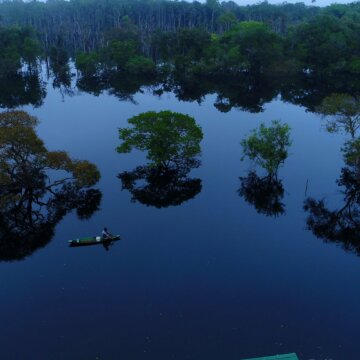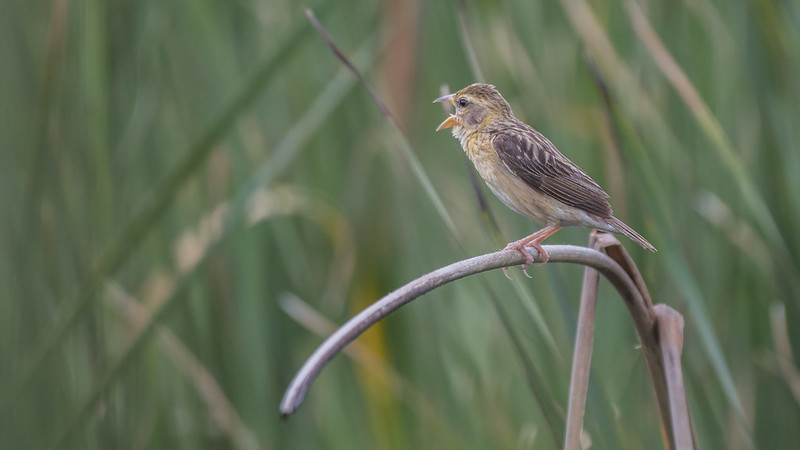- About
- Topics
- Picks
- Audio
- Story
- In-Depth
- Opinion
- News
- Donate
- Signup for our newsletterOur Editors' Best Picks.Send
Read, Debate: Engage.
| topic: | Climate action |
|---|---|
| located: | Brazil, Colombia |
| editor: | Ellen Nemitz |
One of the sculptures by artist Isaac Cordal gives us the exact feeling of watching world leaders meeting to discuss climate change: a group of men in suits deliberating endlessly while the water is rising. The image of the sculpture from 2011, called Follow the leaders, is a reminder that we must go beyond speech and take real action. Now.
Ten years later, on 2 February, 2021, a group of environmental ministers from Latin America and the Caribbean signed an audacious commitment to "build back better and greener” after Covid-19.
As reported by the UN Environment Program, the ministers declared that “The impending global response to the COVID-19 pandemic teaches us to work together to combat the common challenges to the planet and humanity.”
The BridgetownDeclaration contains eight decisions: to tackle pollution,implement circular economy practices, accelerate climate change ambition, preserve biodiversity and restore ecosystems, create an Integrated Environmental Information System, strengthen Emergency Preparedness Network, promote gender equality and provide development for small islands.
Furthermore, another milestone will soon be reached as the Escazú Agreement will enter into force on 22 April, after receiving 12 ratifications. The deal was launched three years ago in Costa Rica and aims to implement "the rights of access to environmental information, public participation in the environmental decision-making process and access to justice in environmental matters,” as well as to contribute “to the protection of the right of every person, at present and in future generations, to live in a healthy environment and to sustainable development."
The treaty also includes the protection of environmental defenders - a necessary measure as the Latin America and the Caribbean witness a very high rate of murders in this field. In Colombia, the most dangerous country to be an environmental activist - according to the Global Witness 64 of them were murdered in 2019 - even an 11-year-old boy, Francisco Vera, recently received a death threat for his activism (he acts since he was 6 and founded the group Guardianes de la vida in 2019).
However, the Escazú Agreement’s entry into force is perceived by specialists to be a half-way measure for the region to reach ideal environmental policies. The situation could only change with a sustained and cooperative engagement of governments and communities - especially considering that nations such as Brazil, Colombia and Peru did not commit.
“The task will be not only on the part of the government but also on civil society sectors to be vigilant, as well as the citizens to demand better rights, better guarantees as well as whatever financing is needed for the implementation of the agreement,” said the coordinator of the Amazon program for the Peruvian nonprofit Law, Environment and Natural Resources, Aida Gamboa, to Mongabay.
This perception is corroborated by Greta Thunberg, who stated regarding the Paris Agreement's 5th anniversary: “Let’s make this [climate and environmental crisis] our main priority. Let’s unite and spread awareness. Once we become aware, then we can act. Then change will come. This is the solution. We are the hope. We, the people.”
Image by Monica Abreu.

